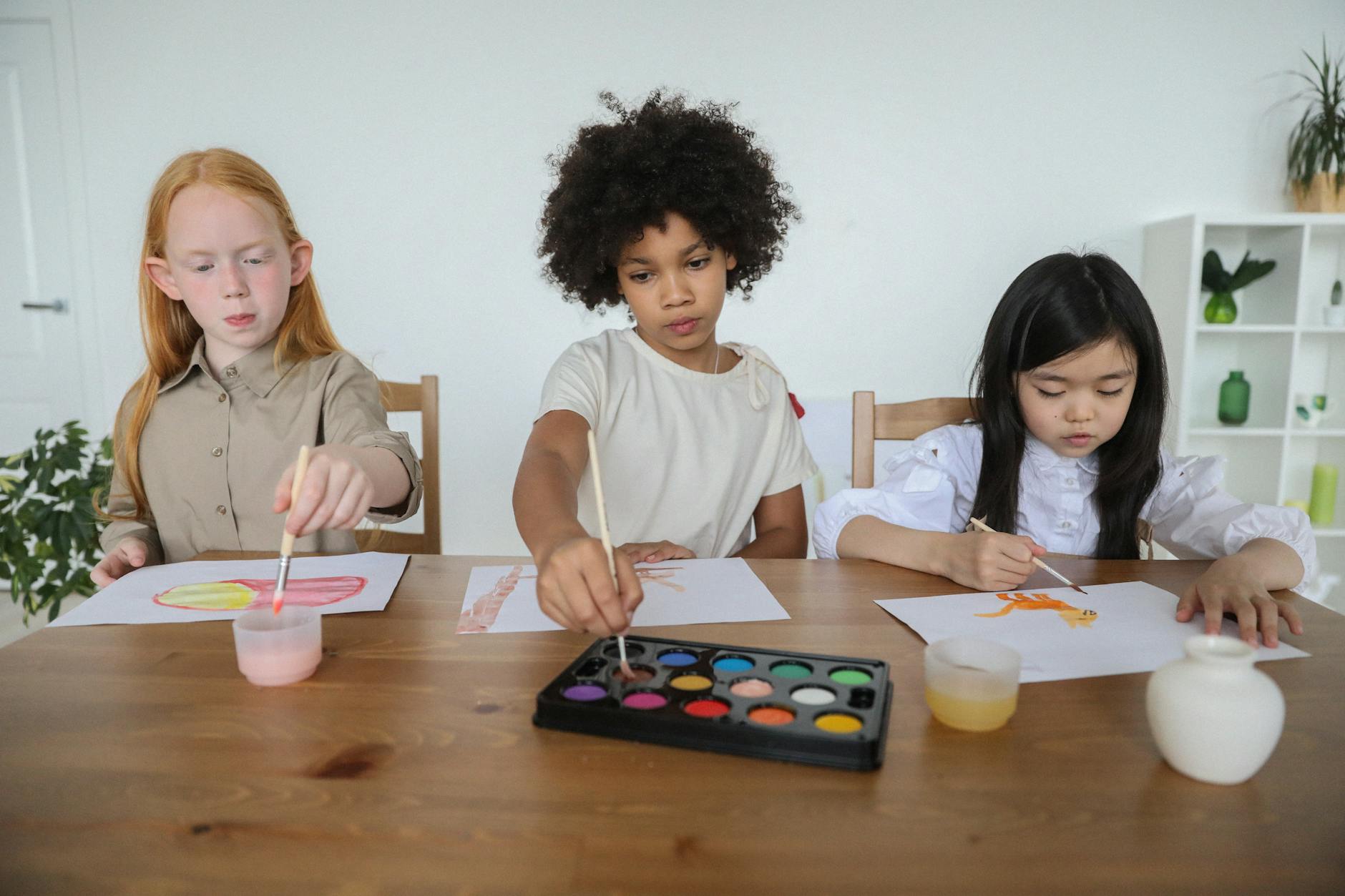How to Enhance Vocational Training in Australia for Aged Care Professionals

Evaluating Current Training Practices
Identifying Strengths
In my role as a vocational educator, I'm consistently exploring methods to enhance our training practices. One of our notable strengths has been the focus on hands-on experiences, essential for any Cert 3 in Individual Support program. Learning by doing is not just beneficial; it transforms students into confident professionals ready to enter the workforce. As I guide my students through their journey, I often draw comparisons to the bustling energy found in the cafes of Degraves Street—unique and filled with diverse interactions that enrich their learning experiences.
Recognizing Weaknesses
Though we have strengths, there are areas in our curriculum where we lag behind contemporary industry expectations. Keeping up with rapid technological advancements has been a consistent challenge. Many vocational programs still rely heavily on outdated resources, leading to a gap between education and the tools used in today’s workplaces. Addressing these gaps requires a community-wide effort, mirroring the eclectic vibrancy of Brunswick Street where collaboration and innovation thrive.
Comparing Industry Standards
To ensure our programs remain competitive, examining how our training measures against industry standards is essential. Benchmarking involves dissecting both content and delivery methods to identify areas needing reform. Engaging with frameworks that emphasize real-world applicability can lead us to cultivate a curriculum aligned with Australia's top standards. Whether integrating examples from the historic Royal Exhibition Building in Melbourne or similar locations, ensuring that our training facilities reflect industry-leading environments can bridge the gap between theory and practice.
Updating Curriculum Strategies
Integrating Technology
In a city as vibrant and dynamic as Melbourne, where the charm of Degraves Street cafes is rivalled by the buzz of its tech scene, integrating technology into early childhood education is more relevant than ever. Technology isn't just a tool; it's a crucial component that transforms the learning environment, enabling educators to offer engaging and interactive experiences. By incorporating devices such as tablets and smartboards, educators can create lessons that capture students' imaginations and cater to various learning styles.
Including Emerging Trends
Staying ahead of emerging trends is essential. Consider how the bustling atmosphere around Melbourne's Royal Exhibition Building reflects this constant state of evolution. One must look at including subjects such as coding, environmental sustainability, and cultural diversity in the curriculum. These topics not only prepare students for the future but also instill a broader worldview and adaptability to change.
Developing Digital Literacy Modules
The eclectic nature of Brunswick Street shops perfectly symbolizes the diversity of skills required in today's digital age. Developing digital literacy modules is vital. This involves teaching students how to safely and effectively navigate online spaces, evaluate information, and use digital tools to enhance their learning processes. Enhancing digital literacy aligns with the broader goals of providing comprehensive education, preparing students to thrive in an increasingly digital world.
Enhancing Teaching Methods
When it comes to refining our teaching methods, Melbourne's vibrant, creative spirit suggests we embrace a dynamic approach. Utilizing interactive tools can have a transformative impact on engagement in vocational training. Imagine incorporating digital platforms like virtual reality simulations, which can mimic real-life aged care scenarios. These platforms help students visualise concepts and develop critical skills in a safe environment. Personalizing learning through interactive technologies deviates from traditional teaching and fosters a more immersive experience.
Equally important is incorporating real-world scenarios into lessons. This strategy bridges the gap between theory and practice, making it easier for students to relate classrooms to their actual work settings. Through community services courses, practitioners can simulate daily tasks they’ll encounter, effectively preparing them for on-the-job challenges. Facilitating such realistic scenarios goes a long way in making the learning process more relevant and practical.
Lastly, peer learning creates an invaluable collaborative environment. Encouraging students to share experiences and insights not only enhances understanding but also builds communication skills crucial for any aged care setting. Picture the iconic cafes of Degraves Street in Melbourne, where the lively exchange of ideas often leads to great insights. Similarly, fostering peer interaction encourages students to learn from one another's perspectives, enriching the educational experience. Each of these strategies collectively aims to create a more engaging and effective learning atmosphere.
Overcoming Implementation Barriers
Addressing Resistance
In my experience, addressing resistance in educational settings often requires patience and understanding, especially when adjusting curricula for aged care courses. One effective approach is fostering open communication. When I sit down with colleagues to discuss changes, I encourage them to express their concerns about implementing new technologies or methodologies. By actively listening and validating their insights, it helps build trust, making them more open to embracing innovation.
Supporting Staff Development
Investing in staff development is crucial for successfully updating curriculum strategies. I remember a colleague expressing anxiety about digital integration in their course. To support their growth, I organised workshops that focused on emerging tools in aged care education—think interactive software and digital platforms. By tailoring these sessions to individual needs and providing hands-on practice, I noticed a boost in confidence and willingness to adapt to modern teaching techniques.
Navigating Technological Challenges
Technological hurdles can seem daunting, but I've learned that breaking them into manageable tasks makes a significant difference. Collaborating with tech-savvy peers has been invaluable; they help demystify complex systems and provide practical solutions. Whether it's updating software or troubleshooting glitches, having a reliable support network ensures that everyone can navigate these challenges effectively.
Witnessing this transformation, akin to the vibrant change seen in Melbourne’s iconic Royal Exhibition Building, has been rewarding. With these strategies, I aim to create an educational environment where innovation blooms and everyone feels equipped to meet the evolving demands of our sector.
Best Practices
Building Industry Partnerships
Collaborating with industry leaders is essential to stay ahead. When I stroll down Brunswick Street's eclectic shops or grab a coffee along Degraves Street, I see how vital these collaborations are. Engaging with experts can bring invaluable insights into specialised techniques and advanced courses. Ensuring a symbiotic relationship with industry veterans not only fosters innovation but also aligns educational goals with real-world demands.
Encouraging Continuous Feedback
It’s like refining a makeup look – feedback is key to achieving perfection. Continuous feedback loops within training programs can transform effectiveness. Engage regularly with both staff and participants to understand their experiences. Through surveys and open forums, akin to the lively discussions at Melbourne’s Royal Exhibition Building, training can evolve to meet changing needs. Of course, it’s equally important to adapt based on this input to remain relevant and effective.
Monitoring Program Effectiveness
Monitoring the impact of your training programs is much like perfecting a skincare routine; it requires ongoing observation and adjustment. Implementing robust assessment methods will help gauge effectiveness, such as tracking participants' performance and satisfaction rates. Utilizing real-world evaluations ensures that your training and development courses in Australia remain aligned with industry needs. Adjusting strategies as necessary to maintain high standards ensures that your educational offerings remain as dynamic and vibrant as Melbourne's cultural scene.


